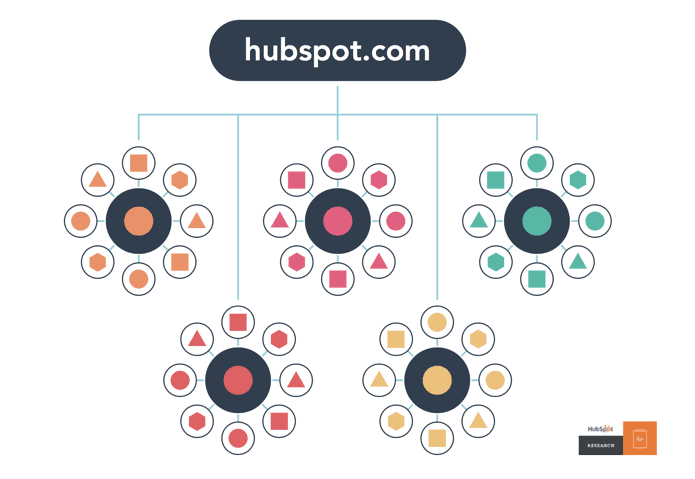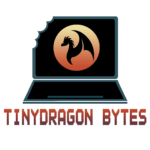
If I had a nickel for every time someone said to me: “I have no idea what to do for my business’s content!”
I’d have a lot of nickels.
The digital marketing world is ever-present, but also ever-changing, especially with the recent development of the COVID-19 pandemic. A lot of businesses have pivoted their marketing techniques. There is a saying that reads, “Content is King.” There is a reason for that; Content is the leading component of a successful digital marketing strategy, and 78% of companies have a team of one-to-three content specialists. But not everyone can hire a content strategist.
Here’s some tips to be able to start your content strategy journey.

Your content can cater to more than just one audience or niche. That’s the beauty of content; it isn’t just for one person.
If you are just starting out, it’s okay to not have an audience yet. And if that’s the case, you’ll want to think of who your audience might be. What do they do? What do they read? Where do they hang out? What gender or age range are they? What do they like to eat? You get the idea. Even if you do have an audience, it’s always a good idea to revisit these questions every so often.
Ask yourself – who do you want to reach? Who will be reading your content? Your competitors, ideal clients?
If your competitors are reading, you’ll want to consider what makes you unique. Why does your audience want to read your stuff? This is where your content comes in.
Your content should answer 3 simple questions:
Additionally, what are 3-5 key takeaways, lessons, or action items that your audience can take away, based on your content?
Once you identify your audience and who you want to cater your content for, you can begin to narrow down your content creation.
Ahh…. The good, old-fashioned calendar.
I can tell you that right now I have 3-4 of these babies laying around my house. They are evergreen tools (oh, the irony) that help us sort out our tasks, thoughts, important dates and holidays…. And of course, plan out our content. I’m not saying that you should plan out a whole year. (I mean if you want to, go for it.) What I am saying is that you can take it month by month, or a few months at a time.
There are tools like CoSchedule that already have a calendar set up for you, you just need to guide the content. If you’re old-fashioned and want to write it down, I personally love a good Panda Planner. Google Docs also is handy for those sharing with a client or team member.
How often you post to your website and social feeds is up to you. You can do it as often as 3 times a week, or every day if you’re a champ. Either way, putting your content strategy in an editorial calendar is going to help you plan everything out for that month, or three months. The good thing is that you can always go back to the calendar and update as you need to solidify your content strategy for your small business!
If you have older content from blog posts or social media posts from 4, 5, or even 6 years, take a second to go through them and see if there are any gems in there that you can find.
Ask yourself – is the content still relevant? If so, are there parts of the post that I can edit or update? Maybe you want to research and find some updated statistics about your topic, or update the photos associated with it.
Most content is recyclable and evergreen (except holidays which are more specific). Ladybugz Interactive Agency wrote a great article on ways to turn your current content into rocket fuel for your blog posts. You can repurpose your old content on your blogs and apply them to become a part of your current content strategy for your small business.
Topic Clusters are exactly what they should sound like: weird, clusters or groups of specific topics. Within that cluster, you have more clusters which are even more specific topics about your pillar topic.
It takes a little bit of brainstorming to come up with topic pillars. Maybe you want to gather ideas from your team or someone within your industry (ahem, accountability partner). Or better yet, let’s chat about a Crush Your Content Session.
Think of your content topic as a totem pole… you have a general idea or umbrella topic up at the top, and as you go down, the more specific your topics are until you can focus one on a blog post (or social media post).
Here’s an example of Hubspot’s New Topic Cluster Structure:

Each topic can turn into subtopics, and so on, and so forth… next thing you know you have 15-30 topics ready to go.
Topic clusters can help to organize your content in ways that you can be strategic about them: how and when you want to deliver them is up to you.
Are you a video-editing guru? A pro selfie-taker? Is Facebook/Instagram Live your jam?
Whatever your jam is… use it! I myself am a copywriter, and naturally I love writing. I also think I’m funny, and post punny content to market myself (aka my dogs). According to Hubspot, Video has become the most commonly used format in content marketing, overtaking blogs and infographics.
Here are some ideas to help you find your authority platform:
The more and more you use your authority platform, the more you will grow your sphere of influence and uplevel your own digital marketing.
2020 was a weird year for all of us. Before you panic and pivot without direction, take a minute to brainstorm and collect your thoughts, especially with how to want to guide your content strategy for your small business, as this will likely affect your Search Engine Optimization.
One thing to keep in mind about SEO is use of keywords and how it plays into your content strategy. A good content strategy can also be strengthened by strong SEO keywords. Even Keyl Web Design suggests using longtail keywords to help boost small business conversion.
Yes, COVID hit all of us hard right in the face, but we also shouldn’t run around like a chicken with our heads cut off. If you are going to pivot, pivot with purpose and with a strategy in mind.

creating digital + strategic experiences to move brand forward
© 2022 Tinydragon Bytes. All rights reserved.